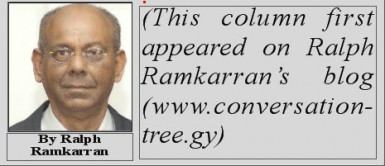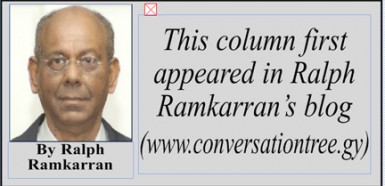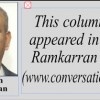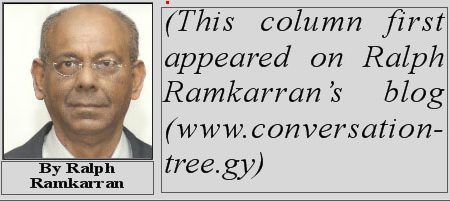
Alliances and compromises in Guyana’s politics
The Cummingsburg Accord is only the latest in the history of alliances in Guyana’s post-war politics.

The Cummingsburg Accord is only the latest in the history of alliances in Guyana’s post-war politics.

The last general and regional elections were characterized by extensive delay in announcing election results and there was an outcry against it.

Working alongside and observing Dr Jagdeo (then Mr Jagdeo) at close range in the PPP for twenty years, I know that he must be enormously tickled at the controversy generated by the court action challenging the presidential two-term limit.

Guyana is in virgin, unexplored, political territory. In various interviews both Opposition Leader David Granger and AFC Leader Khemraj Ramjattan, have indicated that the period of foreplay between their parties is over and consummation is in progress.

The election date has been announced. Because it is just under four months away, the campaign will start slowly.

No matter how often it happens, no matter how much our ears become attuned to the ring of abuse in politics, Guyanese must never allow themselves to become accustomed to it or to be entrapped by it, and to succumb to the temptation of silence.

In a recent advertisement, shown above, the National Independent Party (NIP), led by Mr Saphier Husain-Subedar, until recently known as Mr Saphier Husain, announced its intention to contest the upcoming elections.

If the PPP/C is returned with only a plurality of the votes at the upcoming elections as in 2011, it could adopt the sensible course of inviting the opposition to join it in a coalition government.

The electorate will be called upon in 2015 to decide the political shape of Guyana for the immediate future.

A constitution defines the basic laws, structures for governance and rights and responsibilities under which a society is organized.

For some who oppose the PPP, an alliance of opposition political parties to contest elections has always been a prime objective.

The notion in 1950 by the leaders of the PPP that freedom will bring justice has not materialized.

Guyana has hit world headlines several times in its modern history.

As if the political controversies were not enough, the rains and inevitable floods brought more woes to the populace.

Proroguing parliament is a legitimate constitutional device in Westminster constitutions, whatever its origins and the purpose for which it is used.

President Ramotar said in his address to the nation last week that if the opposition persists with the no-confidence motion, he will “prorogue or dissolve” the National Assembly.

Navin Chandarpal was one of Guyana’s best known public figures and politicians.

The Clerk to the National Assembly has sought, in a letter to the press, to answer my article last Sunday in which I contended that the Speaker must convene the National Assembly now.

There appears to be no consensus among parliamentary parties about a date for the first sitting of the National Assembly after the just concluded recess.

The death penalty has not been carried out in Guyana since 1997.
The ePaper edition, on the Web & in stores for Android, iPhone & iPad.
Included free with your web subscription. Learn more.